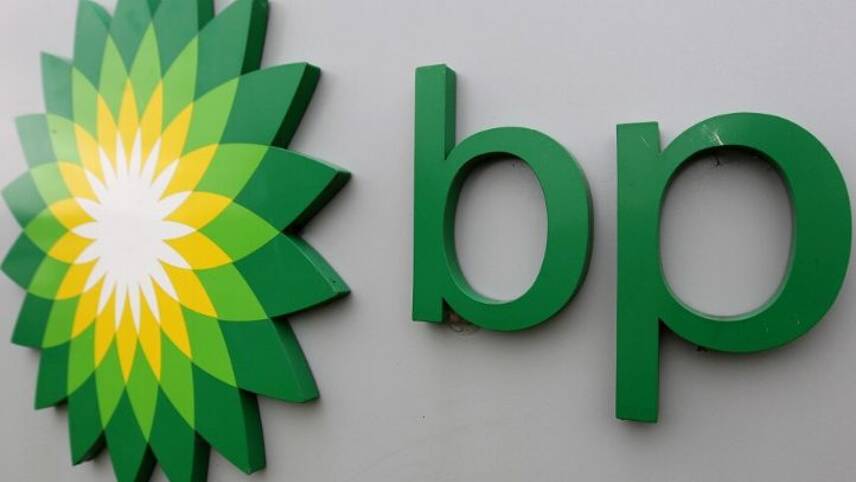Register for free and continue reading
Join our growing army of changemakers and get unlimited access to our premium content

A coalition of 300+ investors have been urging BP to bolster its decarbonisation efforts for more than a year
The firm announced today (1 February) that it will accept the climate, carbon and disclosure recommendations due to be put to BP shareholders by investor group Climate Action 100+ at its upcoming annual general meeting (AGM) in May.
The investor group, which consists of more than 300 firms and individuals with a collective total of $32trn in assets under management, has asked BP to publish details of how its strategy aligns with the 2C trajectory outlined in the Paris goals.
BP said in a statement that it will take this recommendation on board, while also working to exclude high-carbon investments from its existing and future portfolio. This will involve an extra level of carbon analysis for all exploration projects, acquisitions and technological investments, as well as projects at existing oil and gas fields.
BP has also agreed – as per Climate Action 100+’s recommendations – to develop a new sustainability reporting framework, outlining to investors how it is aiming to keep growing and stay profitable throughout the low-carbon transition. This disclosure will be a part of BP’s annual reports from 2019.
“BP is committed to helping solve the dual challenge of providing more energy with fewer emissions, and we are determined to advance the energy transition while also growing shareholder value,” BP’s chairman Helge Lund said.
“We believe our strategy is consistent with the Paris goals. The additional reporting specified in the resolution will build on BP’s history of progressive action in this area.”
A further measure detailed in the agreement between BP and Climate Action 100+ is an incentive to spur board-level staff and those in charge of key products to make more sustainable choices. BP has interpreted this recommendation by pledging to link the bonuses of 36,000 of its workers to the progress it makes towards its climate targets – a move which will be voted on at the AGM.
The adoption of this recommendation comes after rival firm Royal Dutch Shell pledged last December to link progress made towards its carbon reduction aims to the amount of pay awarded to members of its executive board. The company has argued that the move will help drive engagement with sustainability topics among senior stakeholders.
Low-carbon leader or laggard?
The move from BP builds on the firm’s Advancing the Energy Transition (AET) strategy, which has a headline aim of generating reductions of 3.5m tonnes of CO2 equivalent annually throughout the businesses by 2025.
Launched last April, BP claimed the strategy would help it to keep net greenhouse gas emissions at 2015 levels as the business expands.
However, the company has faced much criticism regarding the specifics of its AET strategy – or lack thereof. CDP recently criticised the fact that BP has only made short-term decarbonisations targets which do not cover the firm’s Scope 3 (indirect) emissions, for example, while former BP adviser and current E3G chair Tom Burke dubbed the strategy a “twentieth-century solution to a twenty-first-century problem”.
Critics were also quick to point out that while BP had pledged to invest $500m into low-carbon solutions after posting a strong financial performance in 2017, higher oil prices and growing crude production had pushed up its full-year underlying profits to $6.2bn that year.
Going forward, BP’s adoption of the Climate Action 100+ recommendations may serve to boot its reputation among investors, green groups and the public; the Institutional Investors Group on Climate Change’s (IIGCC) chief executive Stephanie Pfeifer, for example, welcomed the decision.
“Investors are helping ensure climate change is firmly on the boardroom agenda, which is especially important for the oil and gas sector,” Pfeifer said.
“It’s encouraging to see major companies such as BP moving in the right direction. Global carbon emissions need to be reduced urgently and investors expect other companies in the sector to follow suit.”
Investor shifts
Pfeifer’s ascertains come shortly after BlackRock published a new research paper which claims that impact investment and green finance products are “going mainstream” and ceasing to be classed as a “niche” area,
Similarly, a recent briefing paper from Unfriend Coal revealed that 24 of the world’s largest investors have collectively excluded coal from $6trn in assets, as the trend towards divestment from carbon-heavy projects and products continues.
The paper also notes that Europe’s four biggest investment firms – Zurich, Allianz, AXA and Generali – have moved to restrict insurance for coal projects since November 2017, while a third of reinsurers have taken similar action in the same timeframe.
Sarah George


Please login or Register to leave a comment.